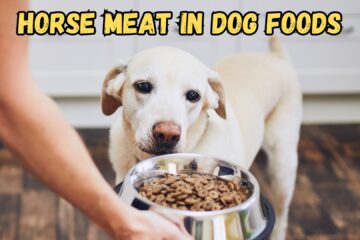Bringing a new puppy home is an exciting experience, but it also comes with important responsibilities, especially regarding their health and safety. One crucial aspect of keeping puppies safe is understanding the foods that can be toxic to them.
While puppies may beg for a bite of whatever we’re eating, it’s important to remember that some common foods can cause serious health issues. Understanding which foods to avoid can make a huge difference in a puppy’s well-being.
In this post, we’ll explore the top 10 foods that are toxic to puppies and provide research-backed information to ensure your puppy stays healthy and safe.
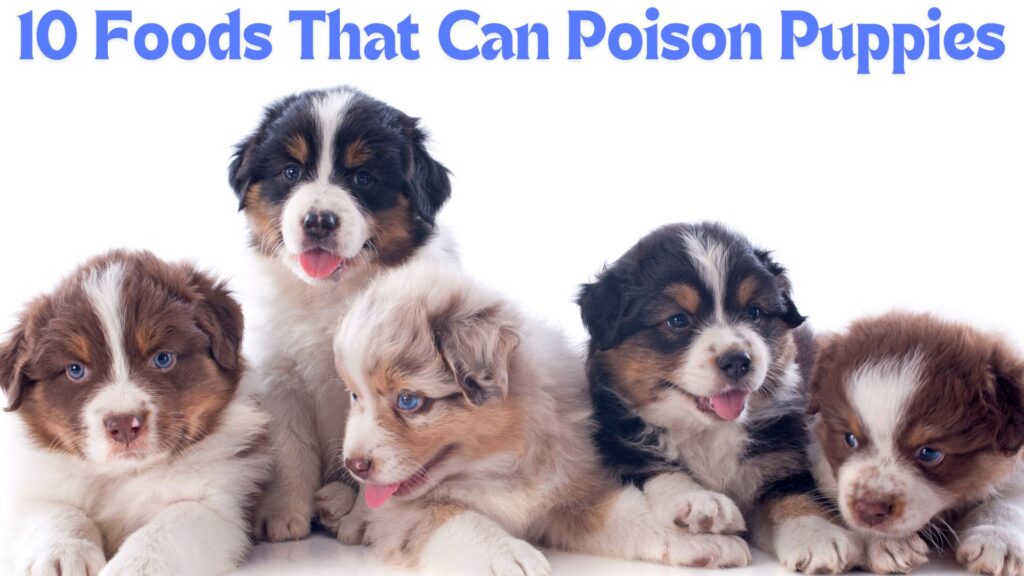
Why Is It Important?
Knowing which foods are toxic to puppies is essential because their growing bodies are more vulnerable to harmful substances. Unlike humans, dogs metabolize certain ingredients differently, which can lead to life-threatening conditions such as kidney failure, seizures, or even death.
Puppies, being curious and playful, are particularly prone to consuming things they shouldn’t. As a pet owner, it’s vital to be informed about which foods to keep out of their reach to prevent accidental poisoning and promote a long, healthy life.
Top 10 Toxic Foods That are Dangerous for Puppies’ Health
1. Chocolate
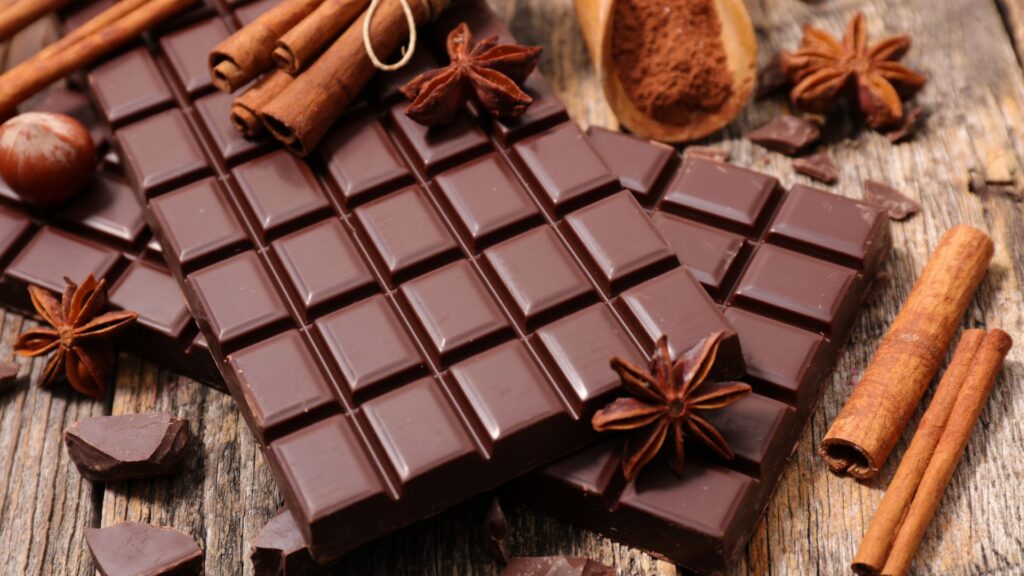
Chocolate is among the most well-known toxic foods for dogs, particularly puppies. The primary toxic agent in chocolate is theobromine, a stimulant that dogs cannot metabolize effectively. Theobromine is present in all types of chocolate, but dark chocolate and unsweetened baking chocolate contain the highest levels, making them the most dangerous.
Even small amounts of these types of chocolate can cause vomiting, diarrhea, and in more severe cases, muscle tremors, seizures, and heart arrhythmias. Larger ingestions can lead to more critical conditions, such as internal bleeding or heart attacks.
Puppies are particularly vulnerable due to their smaller size, so it’s critical to keep all chocolate out of reach. Always contact a vet immediately if your puppy consumes any form of chocolate.
2. Grapes and Raisins
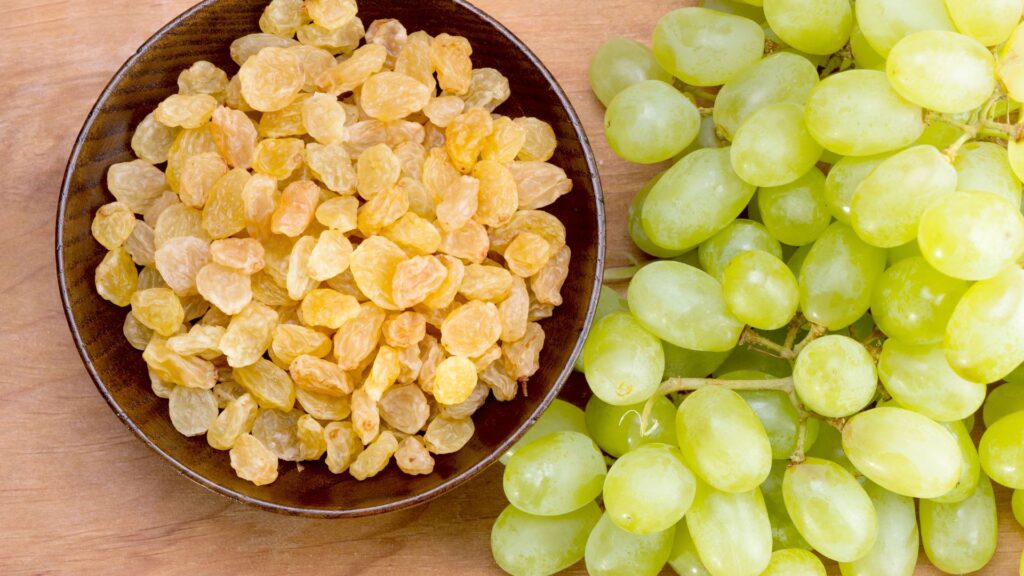
While grapes and raisins might seem like healthy snacks for humans, they can be fatal for dogs. The exact reason behind their toxicity is still unknown, but these fruits can cause severe kidney damage, leading to kidney failure.
Even a small number of grapes or raisins can be dangerous for a puppy, with symptoms including vomiting, diarrhea, lethargy, and increased thirst or urination. In severe cases, this can escalate to kidney failure, which may be fatal without prompt treatment.
Pet owners should be vigilant about foods like granola bars or baked goods that may contain raisins, as even trace amounts can pose a serious risk.
3. Xylitol (Artificial Sweetener)
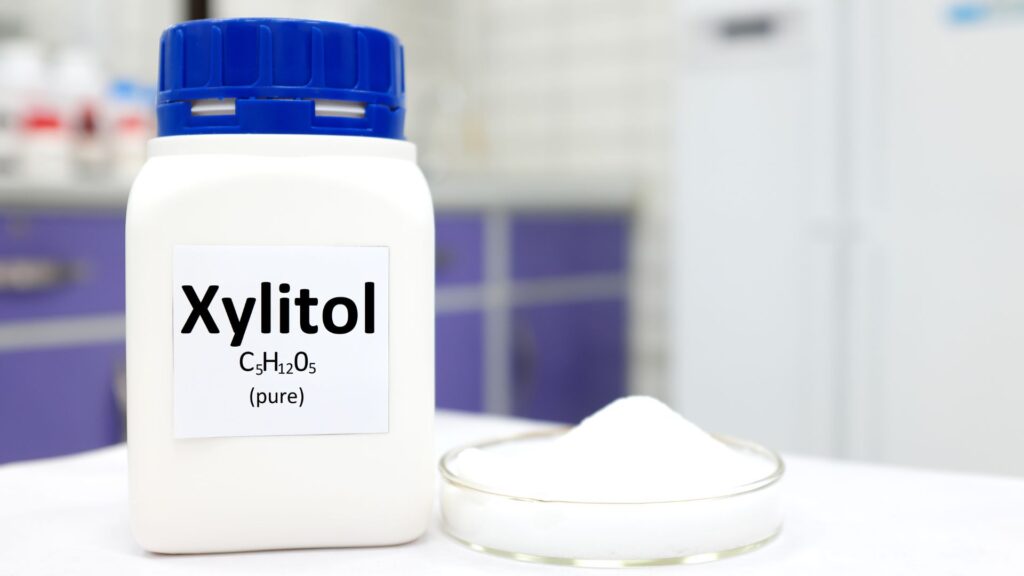
Xylitol, an artificial sweetener commonly found in sugar-free gum, candy, and some peanut butter, is incredibly dangerous to dogs, even in small quantities. When ingested, xylitol causes a rapid release of insulin, leading to a sudden drop in blood sugar (hypoglycemia).
This can result in symptoms like vomiting, lethargy, loss of coordination, and seizures. In severe cases, it can cause liver failure and death. Given its prevalence in everyday products, it’s essential to check ingredient labels carefully before sharing food with your puppy, as even a small amount can lead to life-threatening consequences.
4. Onions and Garlic
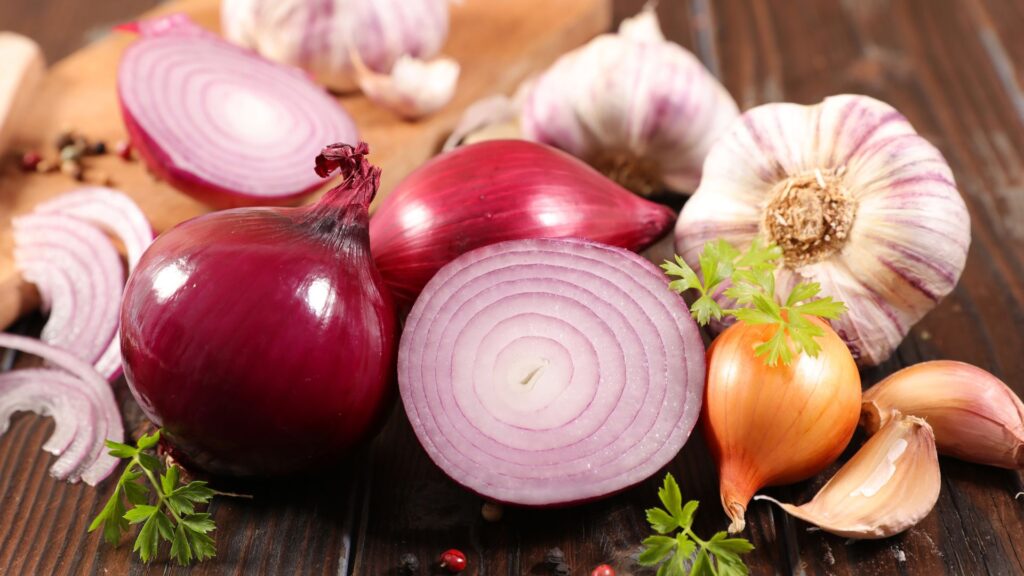
Onions, garlic, and other members of the allium family (such as chives and leeks) are harmful to dogs, with garlic being more potent than onions. These vegetables contain compounds that can damage a dog’s red blood cells, leading to hemolytic anemia.
This condition prevents the blood from carrying sufficient oxygen throughout the body, resulting in symptoms such as weakness, vomiting, elevated heart rate, and potentially, collapse. The risk is higher with large or repeated consumption, making foods containing onion or garlic powder, like certain gravies or sauces, particularly dangerous for puppies.
5. Caffeine

Caffeine is another stimulant that can be dangerous to puppies. It is found in common beverages like coffee, tea, soda, and energy drinks, as well as in some medications. Puppies are especially sensitive to caffeine, and even small amounts can cause symptoms like restlessness, rapid breathing, heart palpitations, muscle tremors, and seizures.
In high enough doses, caffeine ingestion can lead to fatal outcomes. Caffeine-containing foods like chocolate-covered espresso beans or tea bags should be stored well out of your puppy’s reach to prevent accidental ingestion.
6. Alcohol
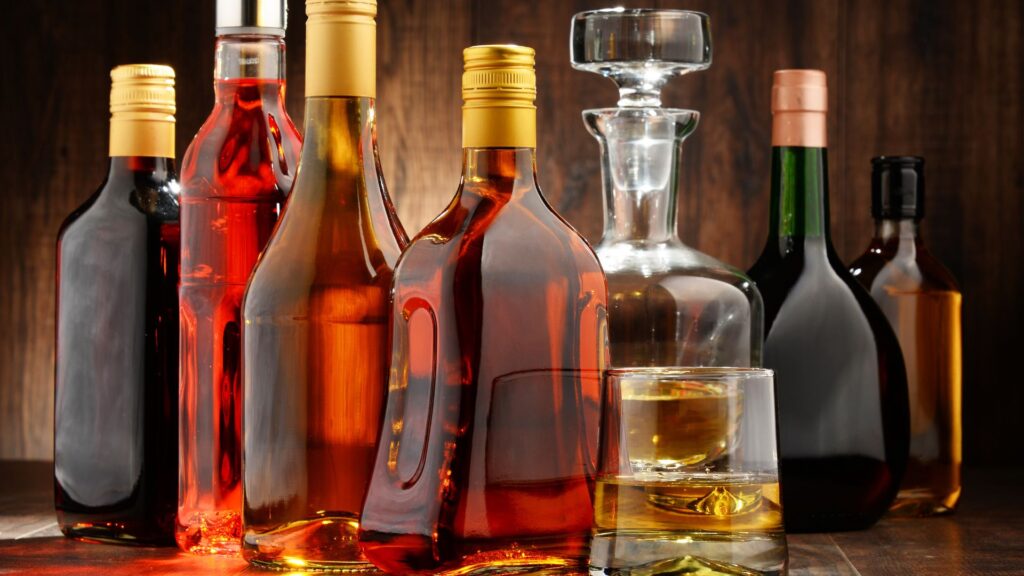
Alcohol is toxic to dogs, and puppies are especially vulnerable due to their smaller size. Even small amounts of alcohol, whether in drinks or in food, can lead to severe poisoning. When a puppy ingests alcohol, it can result in symptoms such as vomiting, difficulty breathing, decreased coordination, and even death in extreme cases.
Alcohol can affect a puppy’s central nervous system and depress essential functions, including heart rate and respiration. Ethanol, the intoxicating agent in alcoholic beverages, is also found in fermented foods and some household products, so it’s essential to be vigilant. Always keep alcoholic beverages and any ethanol-containing products well out of reach.
7. Macadamia Nuts
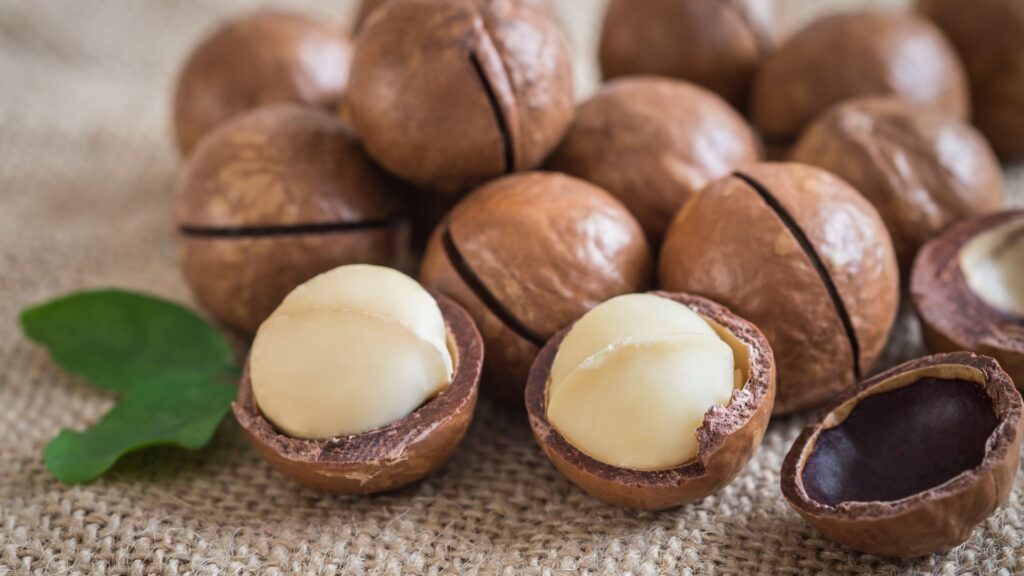
Macadamia nuts are among the most toxic foods for dogs, and even a small amount can cause significant issues. The exact compound that leads to toxicity in dogs is unknown, but symptoms typically appear within 12 hours of ingestion.
These symptoms include vomiting, weakness, tremors, elevated body temperature, and inability to walk properly. In most cases, the condition is not fatal, but it can cause extreme discomfort for your puppy.
Recovery usually takes a couple of days, but in some severe cases, a visit to the vet may be necessary. It’s best to avoid giving puppies any type of nut, especially macadamia nuts, as they are harder for dogs to digest.
8. Dairy Products
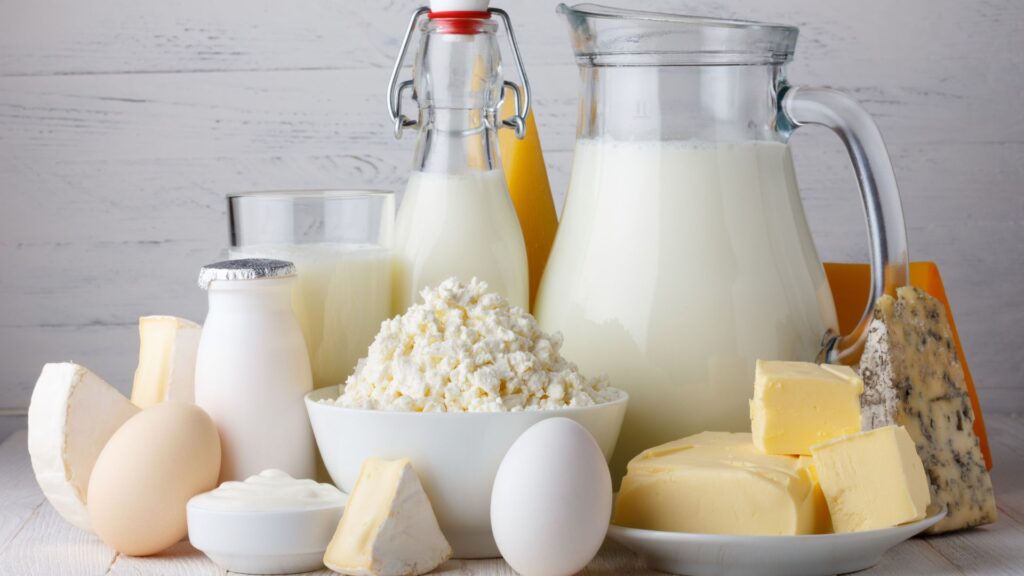
Many dogs, especially puppies, are lactose intolerant, meaning their bodies do not produce enough lactase, the enzyme needed to digest lactose found in dairy products. Feeding a puppy dairy can result in gastrointestinal upset, including bloating, diarrhea, and gas.
While dairy is not considered highly toxic, it can cause discomfort and digestive issues, particularly for lactose-intolerant puppies. Some dairy products, like cheese or yogurt, contain lower lactose levels and may be better tolerated in small amounts, but it’s generally safer to avoid feeding dairy products altogether.
9. Bones
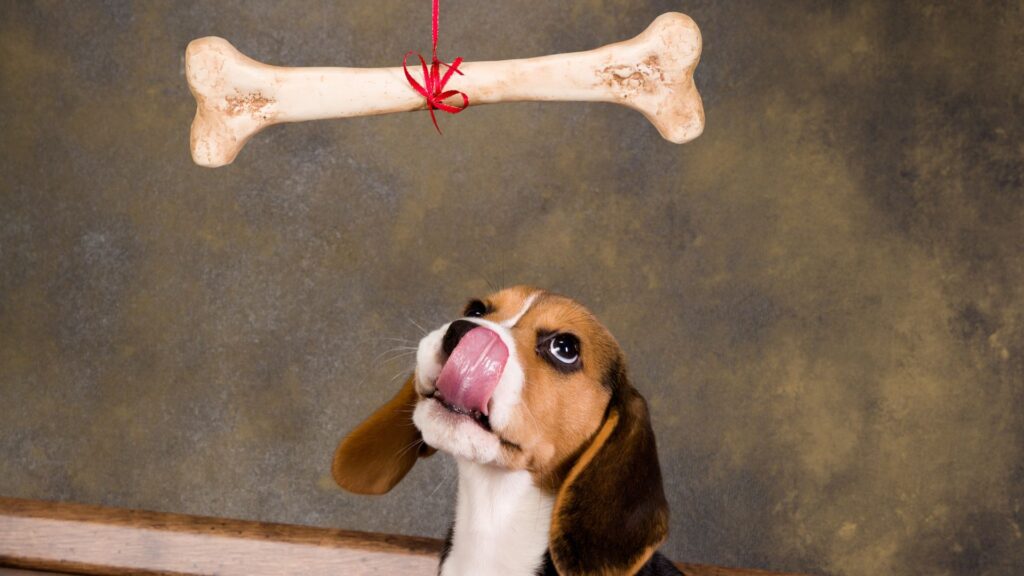
Bones are often considered a classic dog treat, but they pose a serious risk, especially for puppies. Cooked bones, in particular, are dangerous as they can splinter easily and cause internal injuries. These sharp fragments can puncture the puppy’s digestive tract, leading to life-threatening conditions like blockages or perforations.
Even raw bones can be risky if they become too hard, causing cracked teeth or choking hazards. While some raw bones may be safe under supervision, it’s generally safer to opt for specially designed dog chews that pose fewer risks.
10. Salt
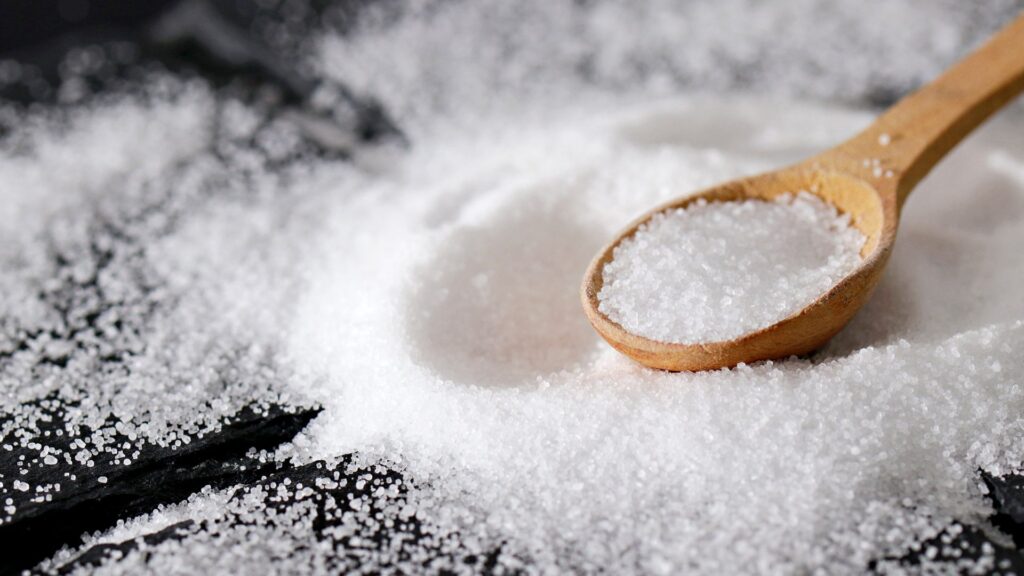
Salt, while essential in small amounts, can be dangerous if ingested in large quantities by dogs, especially puppies. Consuming too much salt can lead to salt poisoning, which can cause symptoms such as vomiting, diarrhea, excessive thirst, tremors, seizures, and in severe cases, death.
Salty snacks like chips, pretzels, and processed foods should be kept out of reach, as puppies are much more sensitive to salt than humans. Ingesting homemade salt dough or high-salt foods can be particularly dangerous, and immediate veterinary care is required if poisoning is suspected.
FAQs
1. Can puppies eat fruit?
Yes, some fruits are safe for puppies, such as apples (without seeds), blueberries, and bananas. However, fruits like grapes and cherries should be avoided as they are toxic to dogs.
What should I do if my puppy eats something toxic?
If you suspect your puppy has ingested something toxic, contact your veterinarian or an emergency pet clinic immediately. Early intervention is crucial.
Can puppies drink milk?
While puppies drink their mother’s milk, most dogs become lactose intolerant after weaning. It’s best to avoid giving them cow’s milk to prevent digestive issues.
Are all nuts dangerous for puppies?
Not all nuts are toxic, but many can cause digestive issues or pose a choking hazard. Macadamia nuts, in particular, are toxic to dogs and should be avoided.
Can puppies eat peanut butter?
Yes, peanut butter is generally safe for dogs, as long as it doesn’t contain xylitol, which is toxic to them.
Conclusion
Understanding what foods are toxic to puppies is crucial in keeping your pet safe and healthy. While it’s tempting to share your snacks with your puppy, it’s important to remember that some human foods can be extremely dangerous for them.
By avoiding these toxic foods and sticking to a balanced puppy diet, you can help ensure your furry friend grows into a healthy adult dog. If you’re ever unsure about what your puppy can and can’t eat, it’s always best to consult with your veterinarian.


